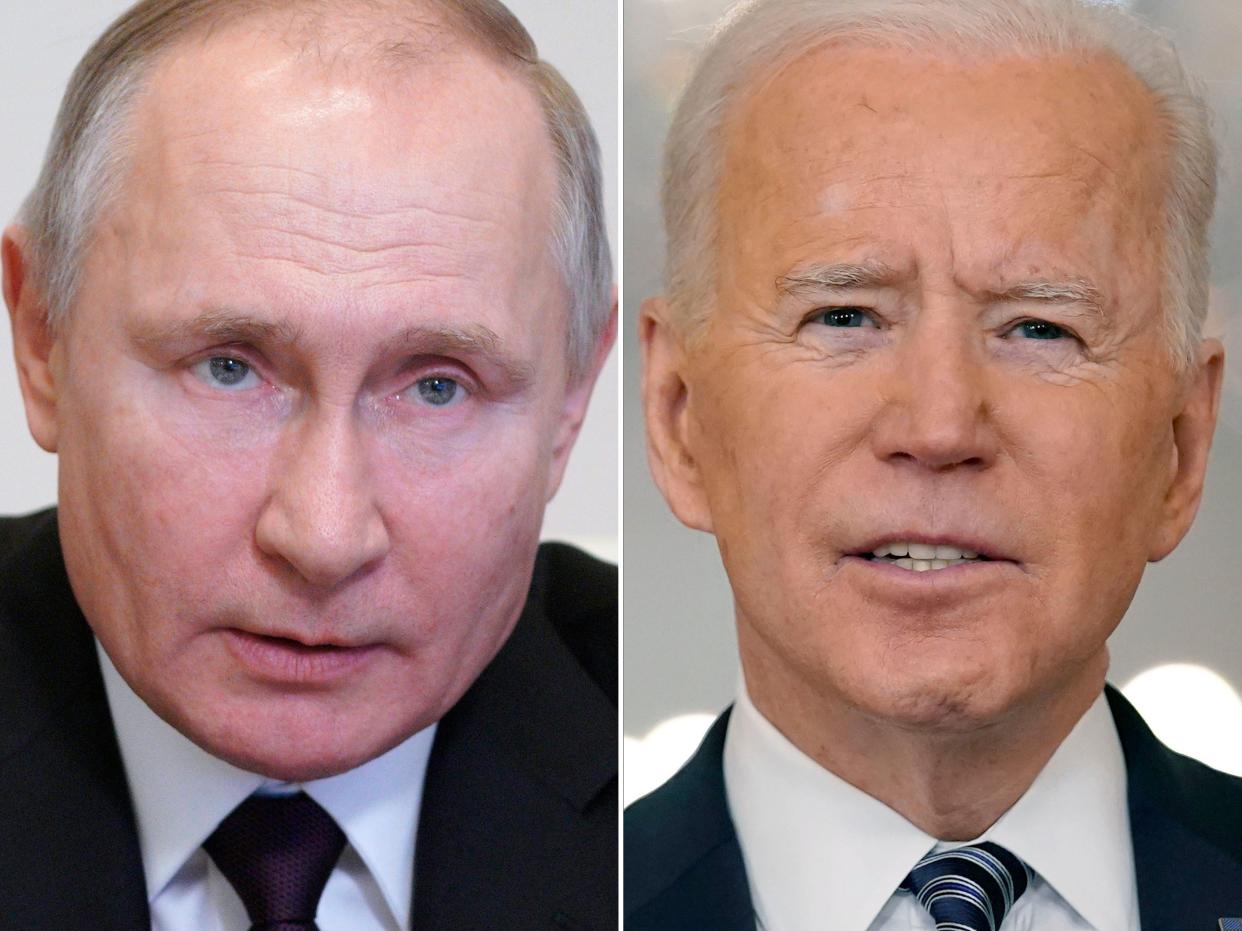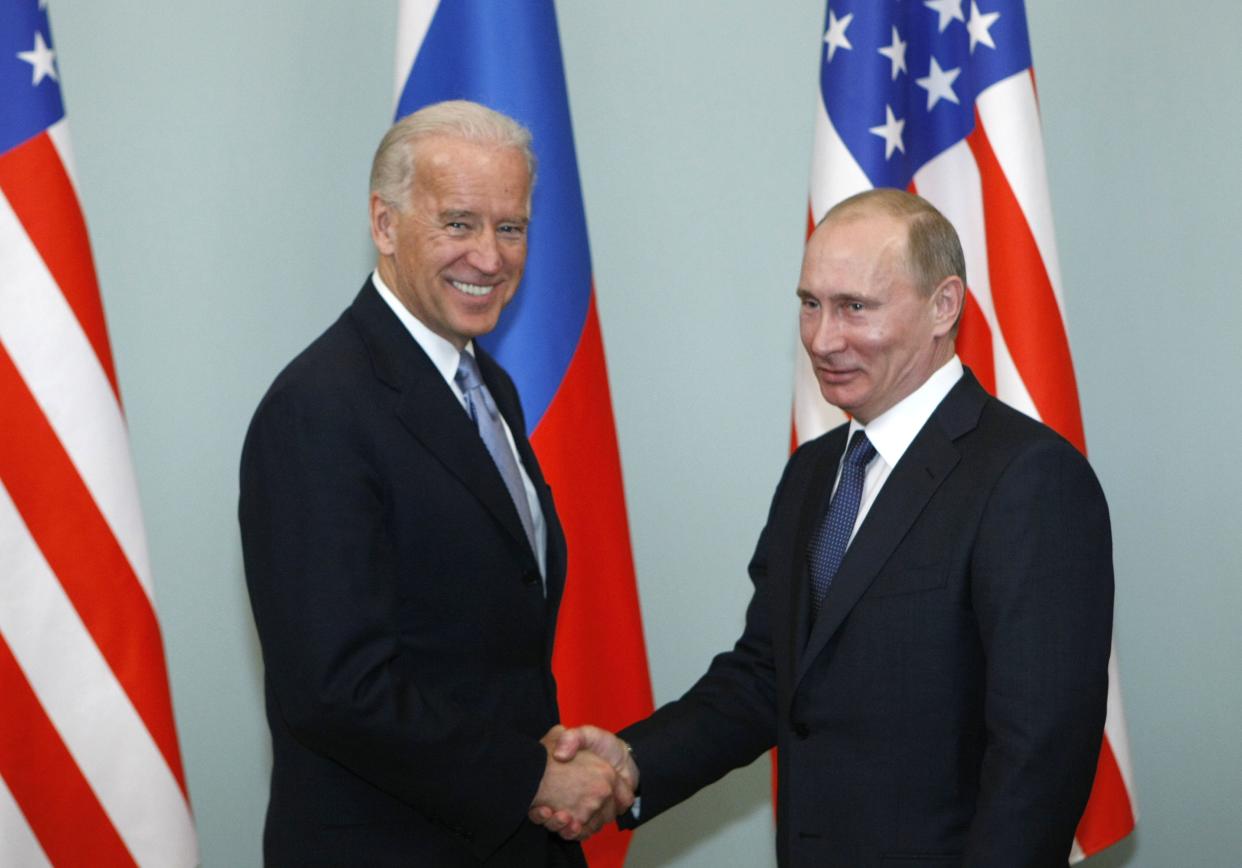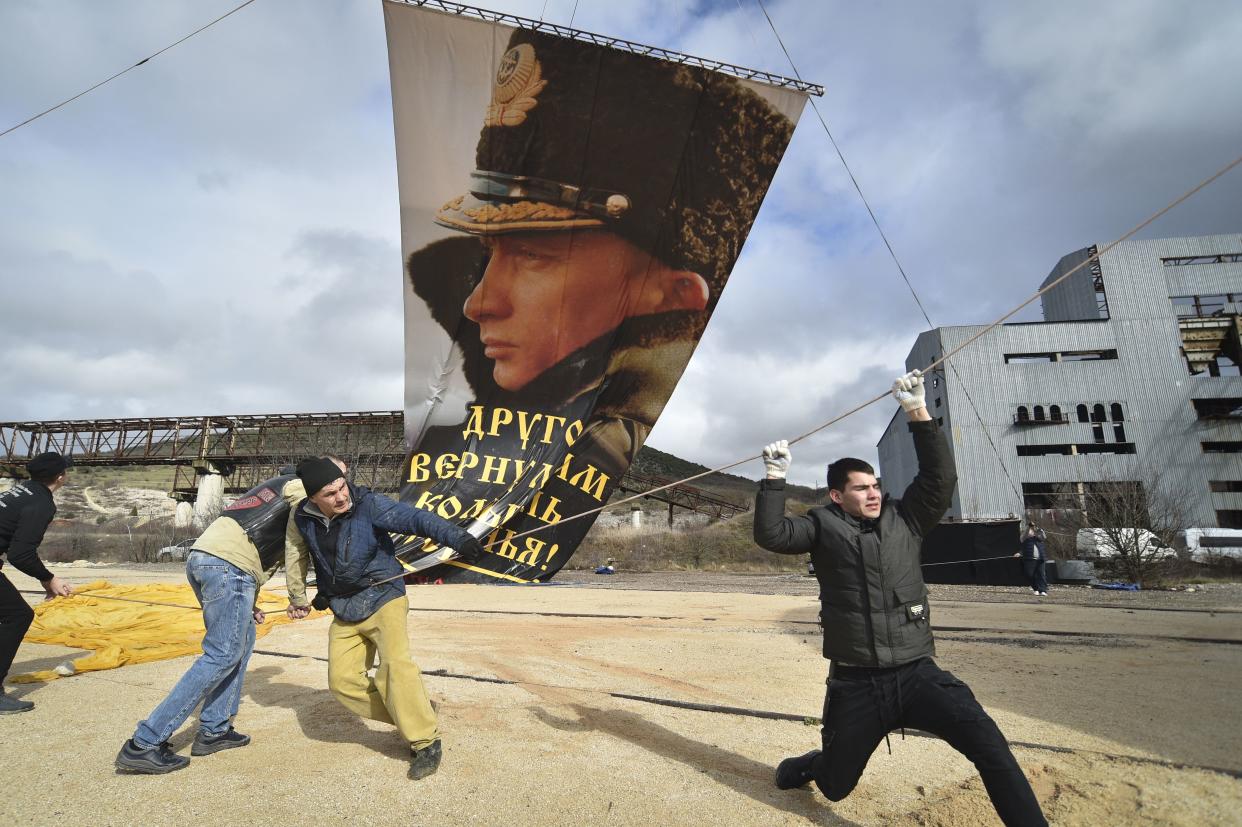Putin points finger at U.S. after Biden’s ‘killer’ remark
MOSCOW (AP) — Russian President Vladimir Putin said Thursday that President Biden’s remarks about him reflect the United States’ own past and current problems.
Biden was asked in an interview whether he thought Russian President Vladimir Putin is a killer and said “I do.” Russia on Wednesday announced it’s recalling its ambassador in Washington for consultations.
Asked about Biden’s remarks during a video call with residents of Crimea marking the anniversary of its 2014 annexation from Ukraine, Putin charged that they reflect the United States’ own troubled past.
The Russian leader pointed at America’s history of slaughtering Native Americans and slavery, arguing that the painful legacy has weighed on the United States.
“Otherwise, where would the Black Lives Matter movement come from,” he said.
He added that Russia would still cooperate with the United States where it answers Moscow’s interests.

Putin’s spokesman Dmitry Peskov deplored what he called “very bad remarks by the U.S. president” that made it clear that “he doesn’t want to normalize relations.”
“We will proceed accordingly,” Peskov said in a conference call with reporters, noting that “there was nothing like that in history.” He wouldn’t answer if Russia could go as far as to rupture diplomatic ties with the United States.
Konstantin Kosachev, a deputy speaker of the Russian parliament’s upper house, said Biden’s “boorish statement” marks a watershed.
“Such assessments are inadmissible for a statesman of his rank,” Kosachev said. “Such statements are unacceptable under any circumstances. They inevitably lead to a sharp exacerbation of our bilateral ties.”

Kosachev warned that Russia’s response wouldn’t be limited to recalling the Russian ambassador “if the American side fails to offer explanation and excuse.” He wouldn’t elaborate on what other action the Kremlin may take.
While announcing the decision to recall the Russian ambassador in Washington, Russian Foreign Ministry spokeswoman Maria Zakharova blamed the U.S. for bringing bilateral ties to a “dead end,” adding that “we are interested in preventing their irreversible degradation, if the Americans are aware of the associated risks.”
Commenting on the Russian move Wednesday, White House spokeswoman Jen Psaki emphasized that “we will be direct, we will speak out on areas where we have concerns, and it will certainly be, as the president said last night — certainly, the Russians will be held accountable for the actions that they have taken.”

The exchange of tough statements comes on the heels of a declassified report from the U.S. national intelligence director’s office that finds President Vladimir Putin authorized influence operations to help Donald Trump in last November’s presidential election.
“[Putin] will pay a price,” Biden said in the interview, asked about the declassified report.
Russia’s relations with the United States and the European Union already have plunged to post-Cold War lows after Moscow’s 2014 annexation of Ukraine’s Crimean Peninsula, election meddling, hacking attacks and, most recently, the jailing of Russia’s opposition leader Alexei Navalny that followed his poisoning he blamed on the Kremlin. The Russian authorities rejected the accusations.
